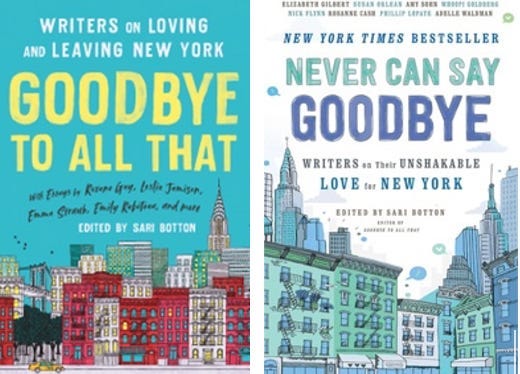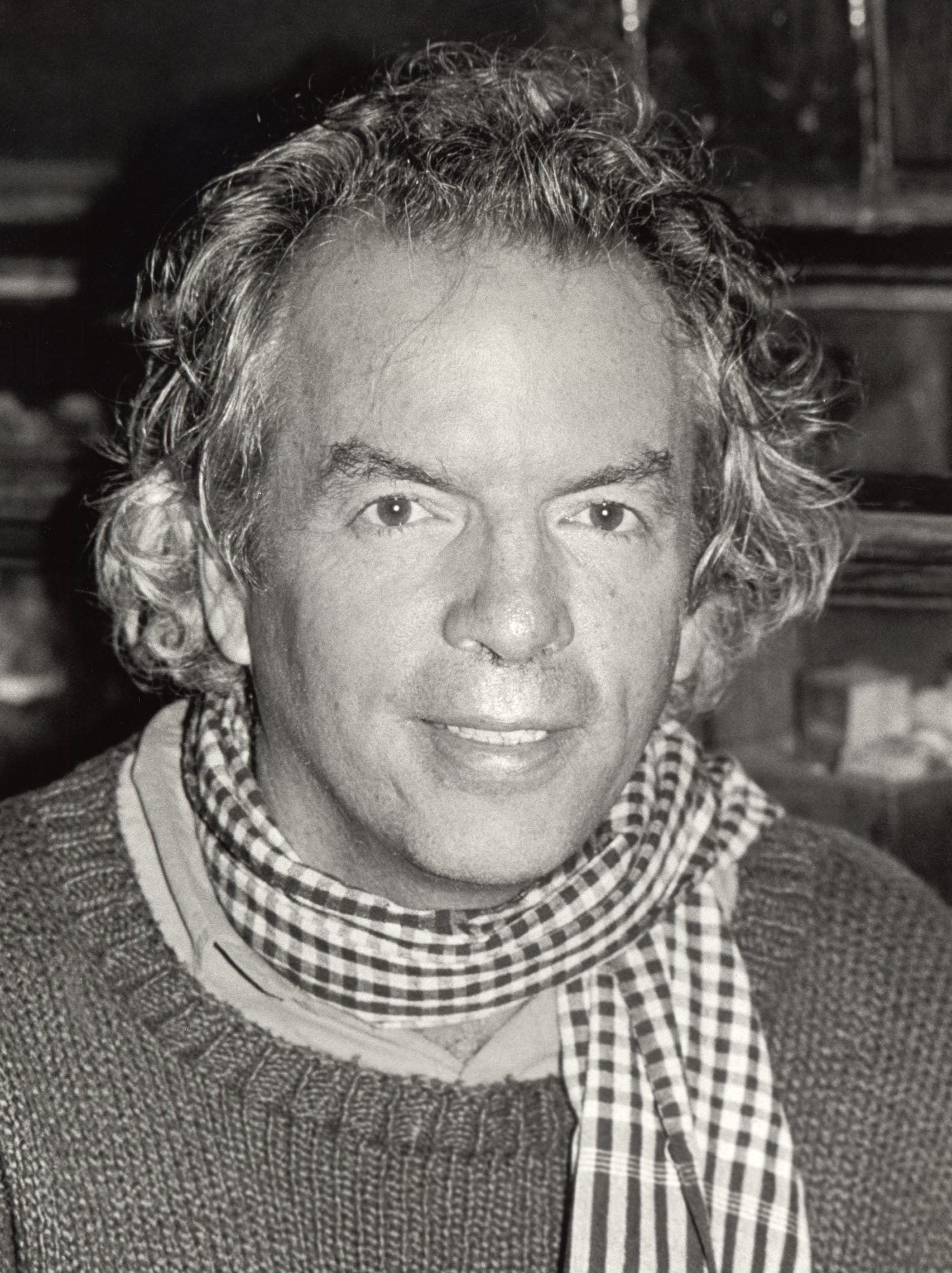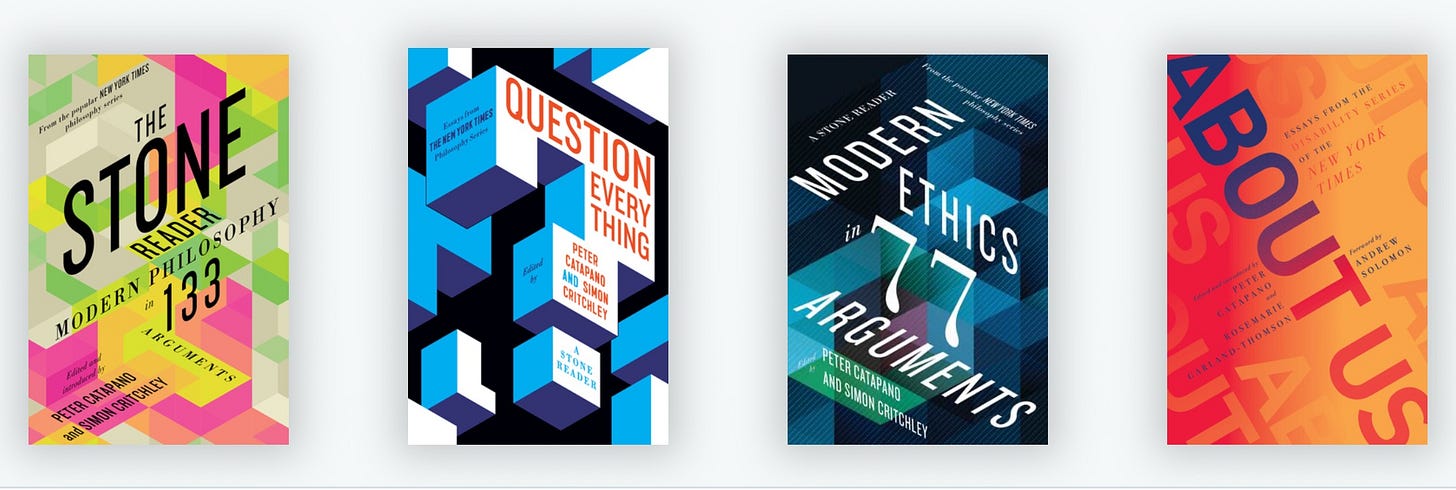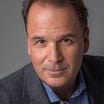In 1988, I was working in a restaurant on lower Broadway, waiting tables. My friend's father, who knew the owners, asked them to give me a job and they did. I wasn't good enough to work the dinner shift so they put me on lunch. The money was OK. I didn't have my own place at the time so I was living on Staten Island with my parents. I would stay up late writing at night and get up most mornings in a foul mood, then leave the house as soon as possible to take the Staten Island Ferry to Lower Manhattan. Some mornings I stood at the back of the boat so I could watch the place I dreamed of leaving behind forever recede into the distance.
The restaurant was a pretty easy place to work. The owners were friendly and genuinely fond of the staff. The patrons were smartly dressed and affable. We used a snazzy computerized system to enter our orders that magically printed out tickets for the kitchen. My greatest fear was that I would drop a huge tray full of plates on my way to a table, but I never did.
The restaurant was on Broadway and Grand Street, and though I saw this job as a temporary gig, I showed up each day with a little thrill. Soho (or LoBro as this little stretch of Broadway was sometimes called back then) was not Staten Island, to put it mildly. At 25, with little but the prospects of love, live jazz and literary fame on my mind, this was the sort of place I wanted to be.
The bartender was a poet named Vic who had just written a novel and was in a constant state of anguish about whether he was good enough to be a “literary” writer (as was I), yet furiously critical of others aspiring to do the same. He was charismatic, well-read, smart and soulful, and I spent a lot of time talking to him about writing, often at the bar while I had my post-shift meal of roast chicken and shoestring fries. Sometimes we would extend the conversation into a night of drinking in the West Village that would usually end in his apartment several hours later. I’d sit on the couch as he pulled vintage copies of Yeats and Joyce from an enormous bookshelf and read out loud from the dogeared pages under the gaze of his patient but long-suffering wife.
The restaurant was on Broadway and Grand Street, and though I saw this job as a temporary gig, I showed up each day with a little thrill. Soho (or LoBro as this little stretch of Broadway was sometimes called back then) was not Staten Island, to put it mildly. At 25, with little but the prospects of love, live jazz and literary fame on my mind, this was the sort of place I wanted to be. The artists’ lofts in the neighborhood had already begun to give way to restaurants and expensive apartments, but a few bars — like Ken’s on Broome Street and Fanelli’s on Spring— as well as the occasional artist sighting, kept things feeling real. I had seen Patti Smith walking on Canal Street one night. Lou Reed outside a movie theater on Broadway.
The Performing Garage, where Spalding Gray, Willem Dafoe, Elizabeth LaCompte and others had established the Wooster Group, was still there on Wooster Street. Sam Shepard was long gone, but I thought of him often, waiting tables at the Village Gate in the 1960s, hanging around great jazz musicians while he made his rent — “cleaning up dishes and bringing Nina Simone ice” was how he described it in a 1969 interview with Mel Gussow in the Times. I believed that Shepard did this for the same reason I came each morning to Manhattan to work in a restaurant — to be closer to art and the people who made it.
Not far from the restaurant there was a Dominican coffee shop on Church Street that made fantastic burritos. I would sometimes go there with my girlfriend for a cheap dinner, but I ended up liking the place so much I started going in for coffee in the morning before my shift. I would sit there reading a book — fiction, poetry, plays, anything I could get my hands on that might edge me along the path of becoming a writer, of finding my own subject and voice.
The man and woman behind me talked for a little while longer in low tones and then I heard a chair scrape the floor somewhat abruptly and turned to see the woman walk out of the restaurant. The man sat there silently, staring at the door even after she left. Seeing his profile, thought I recognized him. Taking another moment to study his face I saw that the man was Spalding Gray.
One morning I walked into the coffee shop toward the counter and saw a man and woman sitting at a table having breakfast and talking. They were older than me, maybe in their 40s, and weren't dressed very stylishly, but they radiated a sort of calm importance. For some reason, I wanted to see what they were eating but I was too shy to look at them long enough to see what was on their plates. So I sat at the counter with my back to them and ordered my coffee.
Every so often I would glance over my shoulder at the two and them and then turn back around. I thought for a moment that just sitting there at the counter of a coffee shop in Manhattan on a sunny morning with nothing very important to do but with important-seeming artistic-looking people sitting nearby having breakfast — this was success. I had made it. I had, in reality, achieved or acquired nothing. No accomplishment, no recognition, no money, but just then I was happy. This was why I slept in my childhood bedroom under the anxious watch of my parents and took the ferry in from Staten Island to wait tables. I'd found myself in the center of the universe I was determined to inhabit, taking a swing at what I wanted to do.
The man and woman behind me talked for a little while longer in low tones and then I heard a chair scrape the floor somewhat abruptly and turned to see the woman walk out of the restaurant. The man sat there silently, staring at the door even after she left. Seeing his profile, thought I recognized him. Taking another moment to study his face I saw that the man was Spalding Gray.
I had become a fan of Gray’s when his star rose as a writer, actor and monologuist in the 1980s, after seeing the film version of "Swimming to Cambodia," then reading and studying the book version. I was drawn to the monologue form he was mastering and popularizing against commercial odds. I had been immersed in an MFA fiction program, where I had done little more than produce earnest imitations of the writers I admired — Saul Bellow one month, John Cheever or Barry Hannah the next. And more than anything, I felt restricted and stultified by the limitations of producing “literary” work for the page — sitting at a desk for long, often fruitless hours, with little hope that it would ever be read. As a writer and performer, Gray brought the human voice and the body back into storytelling and literature in a way that attracted me. I hadn't thought of myself as a performer but watching him I thought maybe I could do something like that.
I had been immersed in an MFA fiction program, where I had done little more than produce earnest imitations of the writers I admired — Saul Bellow one month, John Cheever or Barry Hannah the next. And more than anything, I felt restricted and stultified by the limitations of producing “literary” work for the page — sitting at a desk for long, often fruitless hours, with little hope that it would ever be read.
I turned back around to my coffee, but knowing he was behind me now, I couldn't sit still. I wanted to pretend to be cool enough to see Spalding Gray in a coffee shop and just go about my business, but I couldn't. After a minute I turned back around and caught his eye. We were alone in the place except for the waitress.
"Hello," I said, "excuse me."
He looked up but didn't say anything. We both knew I knew who he was. He wasn’t Tom Cruise, but in Soho at 10 a.m. he was famous. His expression was neither inviting nor off-putting, but I could sense right away that he wished to be left alone, and was affording me a basic courtesy, the way famous people do when approached by fans. I caught a glimpse then of his plate. It seemed there were potatoes involved.
"I just wanted to let you now that I'm a fan of your work," I said over the tables that separated us. "But also that I’m a writer. It's been important to me. Your work, I mean. I learned a lot from it."

I thought my nervousness had passed but I found I was shaking a bit, maybe from the odd experience of traversing the fourth wall and having a conversation on an otherwise uneventful weekday morning with someone I’d admired from afar and hoped in some way to emulate.
He spent another few seconds looking at me and said, "That’s interesting. What specifically did you learn from it?" I don’t believe he said “thank you.”
This seemed very much like him, and very in keeping with his work, to dispense with the usual niceties, treat my statement at face value, and provide an appropriate response. I sat up straight and got ready to speak. I actually had an answer to this.
I loved how in "Swimming to Cambodia” he had stripped the impulse toward art to its basic elements. A man sitting at a desk in an unremarkable long-sleeved Madras shirt, speaking directly to other people: I said, "Your work taught me that it was OK to say directly what happened in your life, that it was OK to just speak plainly, as yourself, without any pretension or need to consciously make things up. To just tell the truth."
When I think of this reply now, I feel shame. It was a neophyte’s simplification of his work. It probably made him wince. His performances themselves were art. He wasn’t just sitting there talking. Enormous time, craft and refinement had gone into them to get to the point where it seemed that he was just a man talking to a group of people.
"Hello," I said, "excuse me." He looked up but didn't say anything. We both knew I knew who he was. He wasn’t Tom Cruise, but in Soho at 10 a.m. he was famous. His expression was neither inviting nor off-putting, but I could sense right away that he wished to be left alone, and was affording me a basic courtesy, the way famous people do when approached by fans.
He didn't say anything to me in response. He just looked at me for another few seconds then went back to his breakfast. I turned around went back to my coffee. After what seemed like a very long time but probably wasn’t, he got up and left. When he had gone I looked at the table and got a better look at his plate. The potatoes were still there. I spied a crust or two of toast and a hint of yellow. It must have been eggs.
***
I THOUGHT of that morning a lot over the years as I pursued my ambitions in classrooms and studios and publishing houses and night clubs and bars, always trying to stay in some way as connected to the particularities of my life as he did, a task that was much more difficult than it seemed — and that certainly took a toll on him. And all along I wanted, as he did, to remain anchored to this city, the place where I was born and which I had tried to leave several times, but never did. Where something like our chance encounter could happen on any given day,
In an often-quoted letter to his adopted city written soon after the Sept. 11 attacks, Gray wrote:
Dear New York City. For 34 years I lived with you and came to love you. I came to you because I love theater and found theater everywhere I looked. I fled New England and came to Manhattan. That island off the coast of America, where human nature was king and everyone exuded character and had big attitude. You gave me a sense of humor because you are so absurd. When we were kids, my mom hung a poster over our bed. It had a picture of a bumblebee, and under the picture the caption read, “According to all aerodynamic laws, the bumblebee cannot fly because its body weight is not in the right proportion to its wingspan. But ignoring these laws, the bee flies anyway.” That is still New York City for me.
When he died in 2004, at 62, I read the news with a sense of despair that was excessively keen for the loss of someone I had met only in passing. Gray had been badly injured in a car accident in Ireland just before the September 11th attacks and fallen into a series of deep depressions. During this time, he thought and spoke often about taking his own life (his mother had died by suicide), and one weekend staged a “rehearsal.” Eventually, he sought help. He even went for treatment to Oliver Sacks. The world’s most famous doctor could not help him.
At last Gray succeeded. He left his apartment on January 10, 2004, and never returned. Two months later his body was found washed up by the East River.
He’d apparently thrown himself off the Staten Island Ferry.








1-30-1989
I met Spalding Gray in Washington Square Park. I saw him and walked around so I could come up from behind him and said, “Spalding, man!” in my worst South African accent. He turned and burst into laughter. He said, “Now that’s an introduction.” I proceeded to tell him how much I admired him and loved his work. He demurred and was completely humble and started asking me questions about myself and what I did/was doing and his eyes lit up when I told him I came to the city for an internship with the War Resisters League. We sat on a bench and he talked about how he had spent time there getting ready for his role in The Killing Fields researching the history of the war(s) in Southeast Asia and the antiwar movement and the times in general. We spent probably 45 minutes talking about this and life in NYC and his experiences doing the monologues and performing in general. It was thrilling and authentic and so pleasant with the activity in the park swirling around us barely noticed. I came away with an even deeper love of him and his work.
I think it is very beautiful and true what you said to him about what you learned. And I think it is a pity that he did not think so.